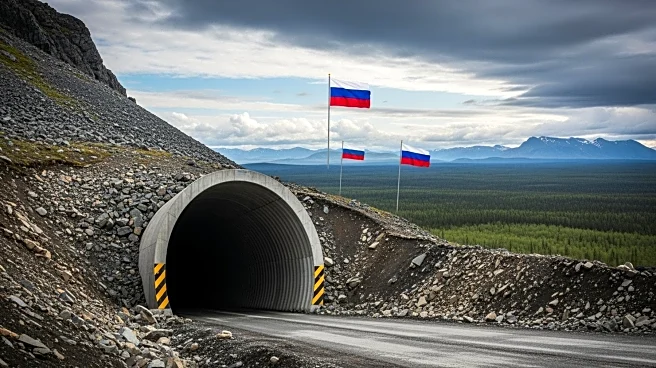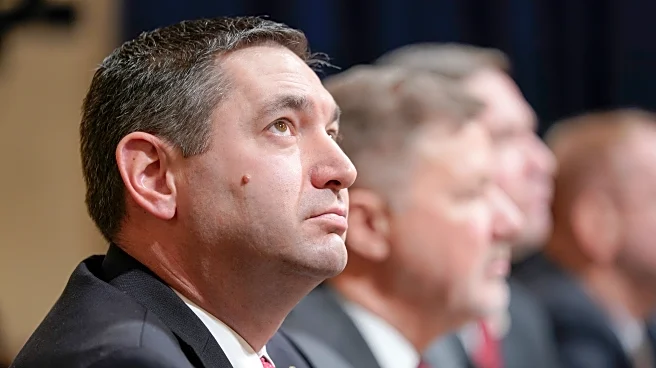What's Happening?
President Donald Trump is contemplating a proposal from Russian President Vladimir Putin's envoy for Elon Musk's Boring Company to construct an undersea rail tunnel connecting Alaska and Russia. The idea was presented by Kirill Dmitriev, a Russian investment
envoy, who suggested the tunnel could symbolize unity between the two nations and be named the 'Putin-Trump Tunnel.' The proposal comes after a call between Trump and Putin regarding the ongoing war in Ukraine. Ukrainian President Volodymyr Zelensky, who met with Trump at the White House, expressed dissatisfaction with the idea, highlighting the ongoing conflict between Ukraine and Russia. The proposed tunnel would be a significant engineering challenge, requiring construction in a region known for extreme cold and frequent earthquakes.
Why It's Important?
The proposal for an Alaska-Russia tunnel represents a potential shift in U.S.-Russia relations, with implications for international diplomacy and economic collaboration. If pursued, the project could enhance connectivity and trade between the two countries, potentially reducing geopolitical tensions. However, the idea has sparked controversy, particularly with Ukraine, which remains embroiled in conflict with Russia. The tunnel's construction would also pose significant environmental and logistical challenges, given the harsh conditions of the Bering Strait. The involvement of Elon Musk's Boring Company adds a layer of technological innovation, potentially reducing costs and setting a precedent for future infrastructure projects.
What's Next?
Secretary of State Marco Rubio and other White House officials are scheduled to meet with Russian counterparts next week, ahead of a planned meeting between Trump and Putin in Budapest, Hungary. These discussions may further explore the feasibility and diplomatic implications of the tunnel proposal. Meanwhile, reactions from international stakeholders, including Ukraine and environmental groups, are likely to influence the project's prospects. The Boring Company's previous projects and regulatory challenges may also impact its ability to undertake such a large-scale endeavor.
Beyond the Headlines
The proposal for the Alaska-Russia tunnel raises broader questions about the ethical and environmental implications of large infrastructure projects in sensitive regions. The potential impact on indigenous communities and local ecosystems must be considered, alongside geopolitical dynamics. The project could also influence future U.S.-Russia collaborations, setting a precedent for addressing global challenges through innovative engineering solutions.

















